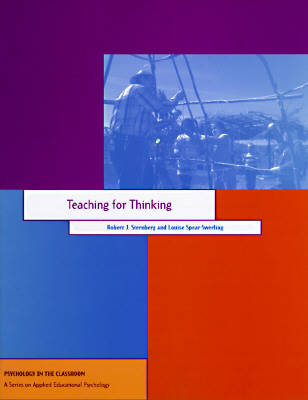What constitutes ""good thinking""? How do analytical, practical and creative thinkers differ? Which teaching strategies promote thinking to learn as well as learning to think? Can asking the right kinds of questions enhance student thinking? In what ways do tests prevent creative and insightful problem solving? Why do some good thinkers fail? How can teachers prepare for the challenges of teaching for thinking? The authors consider these issues and others as they explore the thinking classroom. Illustrated with classroom vignettes and inventive teaching activities, this volume is supported by an empirically validated and classroom tested psychological theory that lays out three ways of thinking and the cognitive processes that underlie them. This inclusive model of student - and teacher - thinking can be used in the context of everyday teaching with any subject matter and with students of any age. The importance of dialogue and the fluidity of teacher and learner roles are crucial for all settings. Teacher readers can learn how to recognise and foster the ""good thinking"" that their students will need in order to achieve success in all of their endeavours, whether inside or outside of school. This book is part of the Division 15 series, ""Psychology in the Classroom"", which is geared toward elementary, middle, and high school teachers. The goal of this series is to encourage teachers to base their daily classroom practice on sound principles derived from the latest educational psychology research. The series thus attempts to bridge the gap between theory and practice. Each book is written in an accessible, straightforward style and contains a wide range of user-friendly features, such as real-life case illustrations, sample classroom activities, self-study questions and suggested readings.
- ISBN13 9781557983756
- Publish Date 1 January 1996
- Publish Status Out of Print
- Out of Print 8 January 2022
- Publish Country US
- Imprint American Psychological Association
- Format Paperback
- Pages 200
- Language English
